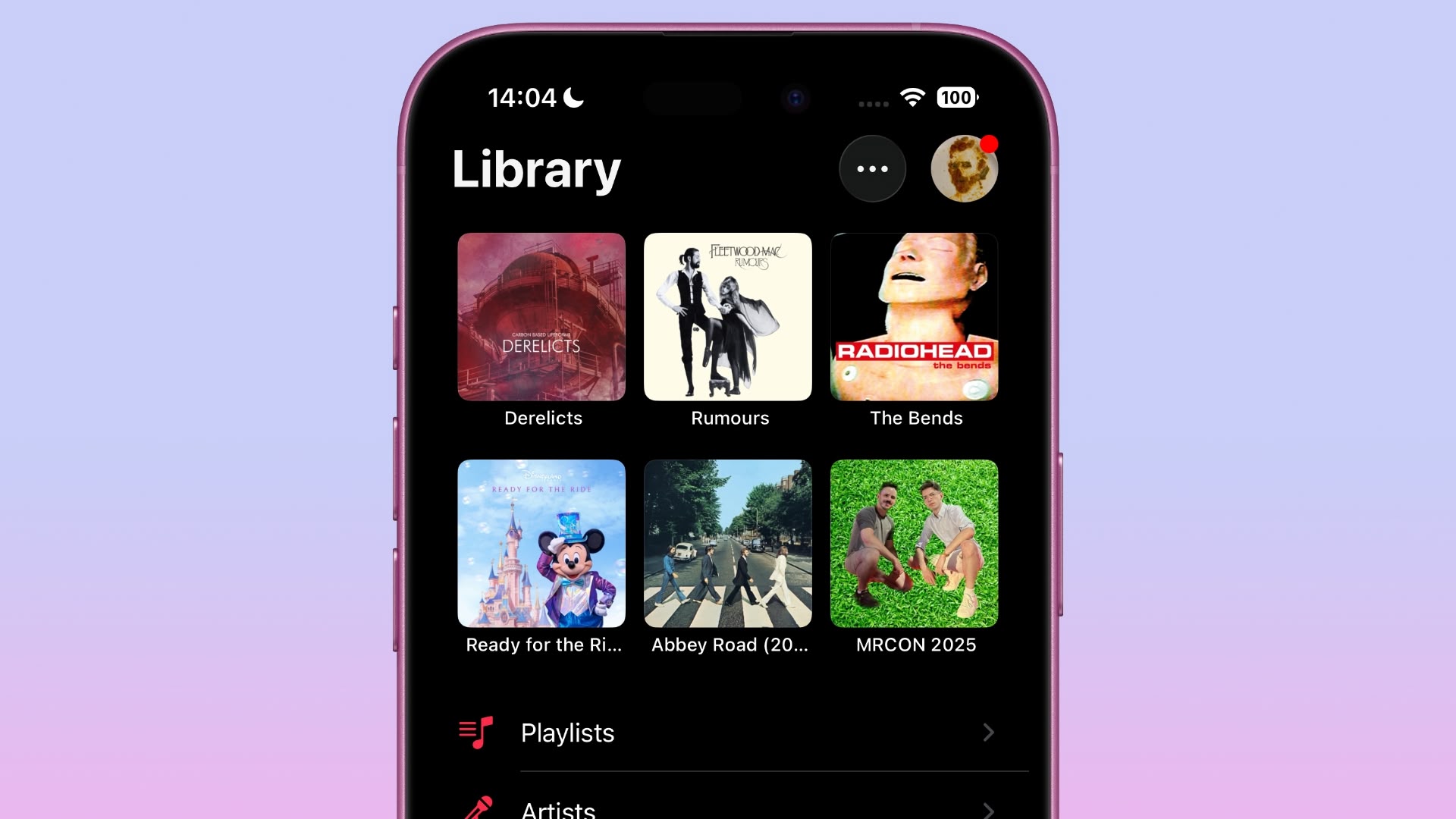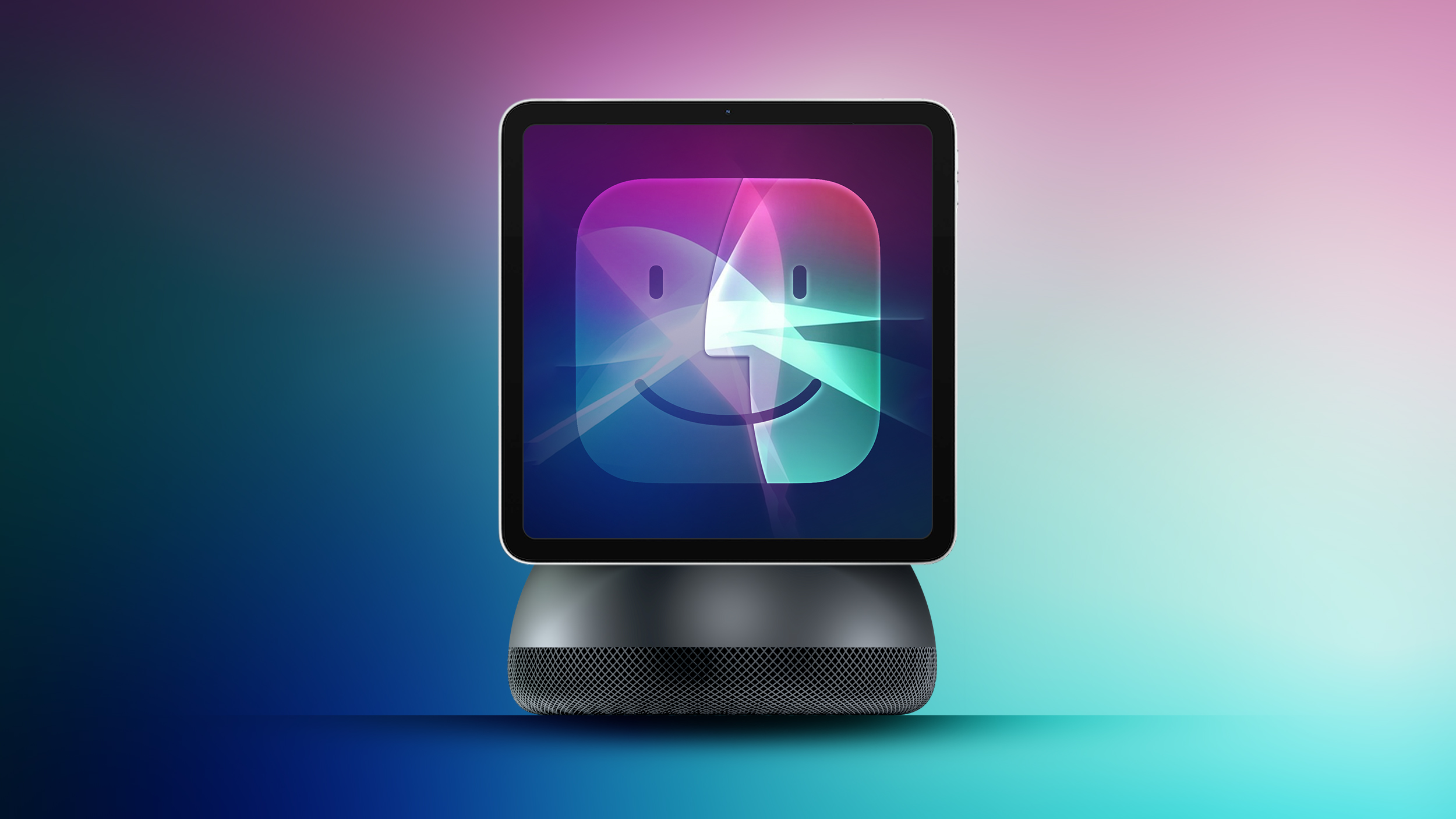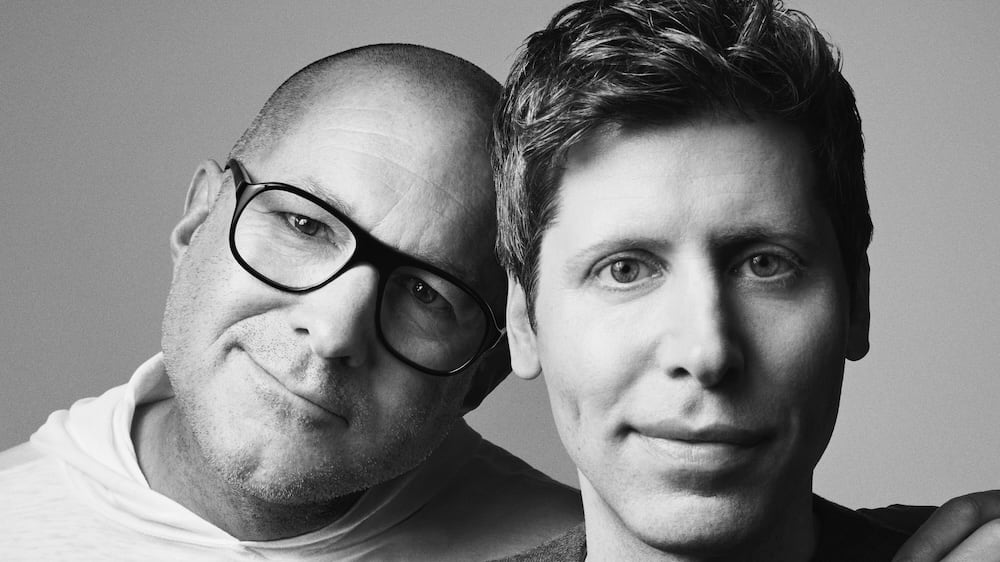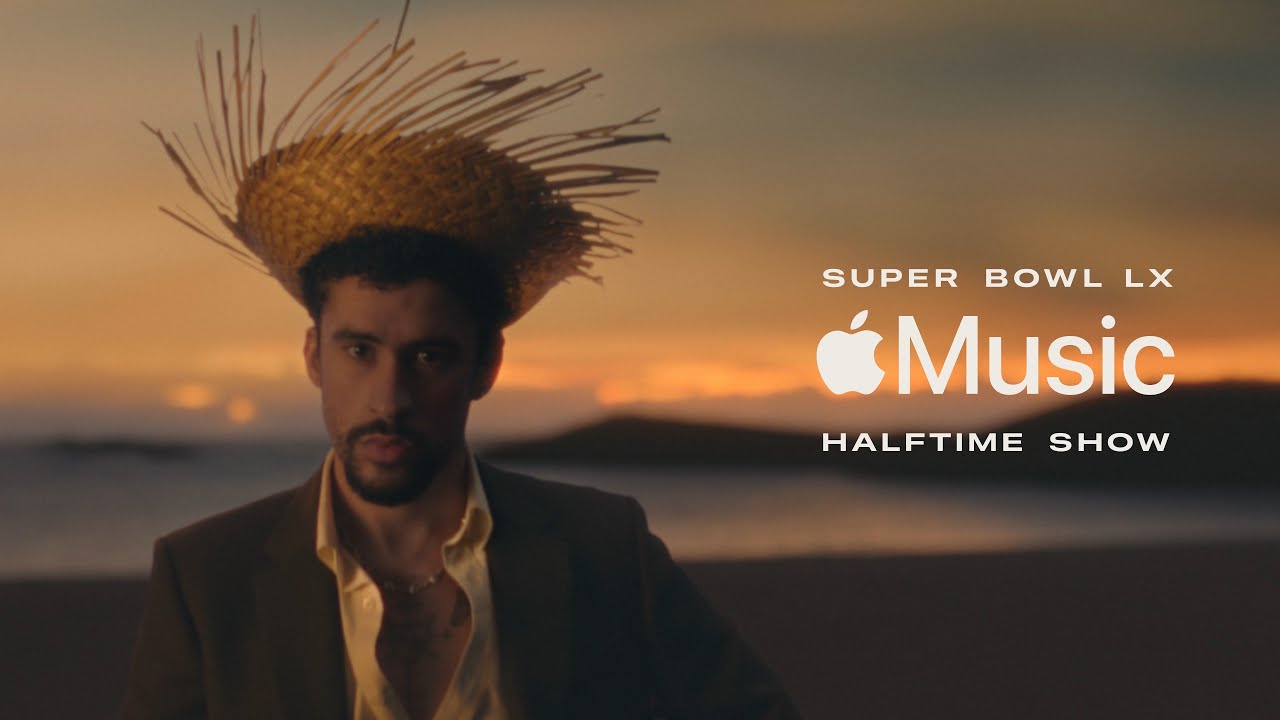|
 As an Apple Music subscriber, you're able to download songs, playlists, and albums from the Apple Music catalog to your iPhone or iPad for offline listening, but this can gradually eat up your device's storage space over time. As an Apple Music subscriber, you're able to download songs, playlists, and albums from the Apple Music catalog to your iPhone or iPad for offline listening, but this can gradually eat up your device's storage space over time.
|
|
Save 20% with an LG promo code today, plus up to $1,000 off appliances, 40% off bestselling TVs and monitors.
|
|
Jensen Huang demonstrates his usual optimism, and reckons the biggest beneficiaries won't be software engineers or data scientists.
The post Davos 2026: Nvidia CEO Says AI Boom Will Spur Demand for Electricians and Plumbers appeared first on eWEEK.
|
|
 Apple is apparently working on a Siri chatbot that will rival Claude, Gemini, and ChatGPT, and Apple is aiming to debut it in less than six months when iOS 27 is unveiled at WWDC. Bloomberg shared details on the chatbot earlier today, but there was one major question unanswered: what will Apple charge? Apple is apparently working on a Siri chatbot that will rival Claude, Gemini, and ChatGPT, and Apple is aiming to debut it in less than six months when iOS 27 is unveiled at WWDC. Bloomberg shared details on the chatbot earlier today, but there was one major question unanswered: what will Apple charge?
|
RELATED ARTICLES | | |
|
 OpenAI is "on track" to unveil its first AI device in the second half of this year, Axios reported this week. OpenAI is "on track" to unveil its first AI device in the second half of this year, Axios reported this week.
|
|
Speculations about the iPhone 18 and 18 Pro are spreading like wildfire.
|
|
We've tested and reviewed every iPhone Apple sells. From the iPhone Air and iPhone 17 to the iPhone 16E and iPhone 17 Pro, we have recommendations to suit your needs and budget.
|
|
At Davos, Anthropic CEO Dario Amodei warned that selling AI chips to China is like arming North Korea, citing rapid AI progress and job disruption risks.
The post Anthropic CEO Sounds Alarm: AI Chips for China Are Like Nukes for North Korea appeared first on eWEEK.
|
RELATED ARTICLES | | |
|
OpenAI says it's on track to unveil its first-ever device this year, as Chris Lehane hints details will come much later.
The post OpenAI Sets 2026 Timeline for Its First-Ever Hardware Reveal appeared first on eWEEK.
|
|
 In September, Apple and the NFL announced that Puerto Rican rapper and singer Bad Bunny will headline the Apple Music Super Bowl LX Halftime Show on Sunday, February 8. The performance will take place at Levi's Stadium, in Santa Clara, California. In September, Apple and the NFL announced that Puerto Rican rapper and singer Bad Bunny will headline the Apple Music Super Bowl LX Halftime Show on Sunday, February 8. The performance will take place at Levi's Stadium, in Santa Clara, California.
|
|
NEW RESOURCES 2600: The 2600 Voice BBS Archives, Hope_16 Videos, And A Shower Curtain. "For those who don't know, the 2600 Voice BBS was a unique hacker bulletin board system run by […]
|
|
 Best Buy kicked off a new Winter Sale this week, with notable markdowns on Apple devices, TVs, headphones and speakers, monitors, appliances, and much more. This sale is set to last through January 19, and you don't need to be a My Best Buy Plus or Total member to see the deals. Best Buy kicked off a new Winter Sale this week, with notable markdowns on Apple devices, TVs, headphones and speakers, monitors, appliances, and much more. This sale is set to last through January 19, and you don't need to be a My Best Buy Plus or Total member to see the deals.
|
|
If Windows 11 is on the table for you, today is your lucky day because you can get Windows 11 licenses for super cheap on the PCWorld Software Store right now. Seriously, both Windows 11 Home and Windows 11 Pro are currently priced at $14.97 each. That's down from $139 (89% off) and $199 (92% off), respectively. Huge savings!
Casual users who don't need all the fancy features of the Pro version can get away with Windows 11 Home, although given that they're on sale for the same price, you might consider getting Windows 11 Pro for the heck of it. Windows 11 Pro unlocks advanced features like BitLocker encryption, Remote Desktop Server, Hyper-V virtualization, and Windows Sandbox. (See our breakdown of Windows 11 Pro versus Home.)
Get Windows 11 for up to 92% off right nowBuy now via PCWorld Software Store
How to activate your Windows 11 license
After you've made your order, you'll have to check your email inbox for the license key. Once you have that and your chosen Windows 11 copy is installed, here's how to activate t
|
|
Let's start with the coolest thing about this cable: it's retractable. That's right. It's tiny and compact when you aren't using it, then stretches out to a maximum length of 6.6 feet. Or you can use it at one of its many preset lengths: 1.9 feet, 3.1 feet, 4.1 feet, 4.9 feet, 5.7 feet, and 6.2 feet. Just tug on it when you're done and it rolls back onto itself.
It's fast, too, providing up to 100W of power. With a proper 100W charging block, you can fast-charge your phone, tablet, laptop, earbuds, or whatever else in mere minutes rather than hours. That makes it perfectly versatile for so many device types and it'll serve you well for many years to come.
What's not to love about this nifty little accessory? Grab this retractable 100W Baseus USB-C cable for $15.19 before this deal goes away! This is, by the way, the cheapest price it's ever been. Nice!
It's fast, it's retractable, and it's never been cheaper beforeGet this nifty USB-C cable on Amazon
|
|
First, the news: In its announcement that the Brad Pitt blockbuster F1: The Movie will make its debut on Apple TV in December, Apple casually noted that as of now, Apple TV isn't Apple TV anymore.
"Apple TV is now simply Apple TV, with a vibrant new identity," Apple's press release reads. What's the new identity, you ask? Aside from a new and multicolor Apple TV logo, that's hard to say.
Those of us who follow the streaming industry greeted the news with furrowed brows. So Apple TV the streaming service is now on Apple TV, the streaming box? Isn't that kind of confusing? Yes, the Apple TV streaming player is officially known as "Apple TV 4K," but still.
Well, it's details like the " " and the "4K" that cause headaches when it comes to clear and consistent branding, and the truth is most folks haven't bothered with the "plus" for a long time. Severance, The Studio, The Morning Show, Ted Lasso—those are all Apple TV shows, according to everyday streamers.
Sometimes, simplicity and familiarity are best. Take HBO Max, which went through a three-year-old rebranding drama that saw the service renamed as "Max," a change that was mainly driven by the now-unraveling alliance between the former WarnerMedia and Discovery.
Warner Bros. Discovery likely spent a fortune trying to get the Max branding to stick, but most subscribers just kept calling it HBO Max. Finally, the entertainment giant stopped swimming against the ti
|
|
TIME100 talks panelists agreed that a focused bill regulating stablecoins could help cement the U.S. dollar's dominance.
|
|
 Workers told researchers that ChatGPT has helped them complete tasks more quickly, be more productive, and reduce stress levels. The post Workers Using AI To Snag Pay Raises, Promotions: Survey appeared first on TechNewsWorld. Workers told researchers that ChatGPT has helped them complete tasks more quickly, be more productive, and reduce stress levels. The post Workers Using AI To Snag Pay Raises, Promotions: Survey appeared first on TechNewsWorld.
|
|
The appeal of promising network technologies can be jaded by pressure to adopt untested ideas. When I look over the comments I've gotten from enterprise technologists this year, one thing that stands out is that almost three-quarters of them said that entrenched views held by company executives is a "significant problem" for them in sustaining their network and IT operations.
"Every story that comes out gets me a meeting in the board room to debunk a silly idea," one CIO said. I've seen that problem in my own career and so I sympathize, but is there anything that tech experts can do about it? How do you debunk the "big hype" of the moment?
For starters, don't be too dismissive. Technologists agree that a dismissive response to hype cited by senior management is always a bad idea. In fact, the opening comment that most technologists suggested is "I agree there's real potential there, but I think there are some near-term issues that need to be resolved before we could commit to it." The second-most-cited opening is "I've already launched a study of that, and I'll report back to you when it's complete." There's usually a grain (yeah, often a small grain) of truth underneath the hype pile, and the best approach is to acknowledge it somehow and play for time. Hype waves are like the tides; they come in and they go out, and many times management will move on.
To read this article in full, please click here
|
|
